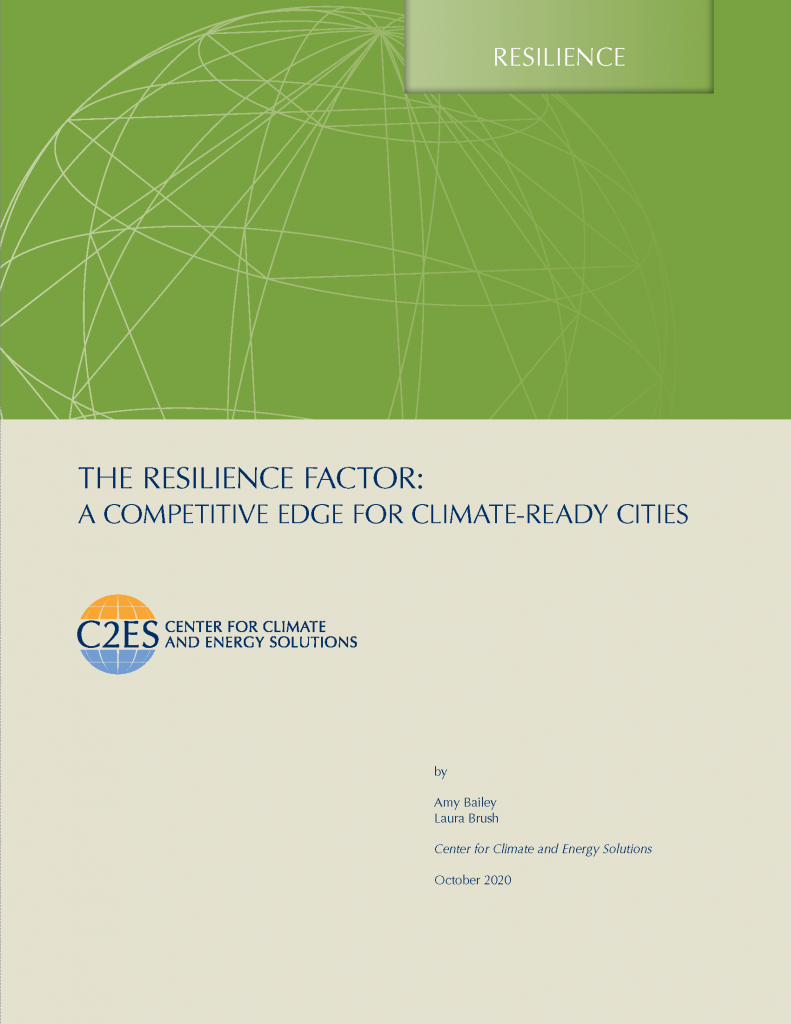Climate change is happening now, and cities across the country are facing the effects of both extreme weather events and chronic impacts. It’s easy to see the immediate physical impacts of climate change devastating people and property through sea level rise, hurricanes, wildfires extreme heat, and floods. But climate impacts are also threatening cities’ competitiveness—their ability to protect their finances, attract capital, and protect and attract residents and businesses.
The Resilience Factor: A Competitive Edge for Climate-Ready Cities explores these issues and outlines policies and practices for policymakers and private sector stakeholders that can better position cities to manage climate impacts, and thrive despite them.

Read the full report Here.
Or explore our findings in Factoring in Resilience for City Competitiveness, our digital scrolling story.
C2ES interviewed representatives from cities, regional organizations, climate consultants, and companies, and analyzed local planning documents to understand how cities are addressing climate threats to their finances, economic development, and livability.
The report found climate preparedness is playing an increasingly influential role in the economic competitiveness of cities, while cities that fail to address the challenges may fall behind. To realize potential gain and avoid losses, they need a concerted effort across sectors and government.
Key Findings:
- By addressing climate risks and boosting their resilience, cities can position their local economies to thrive in a climate-changed world.
- Local climate vulnerabilities and risks are becoming more salient to businesses, investors, insurers, and residents, and by addressing these risks, cities can strengthen their finances, attract investors, and improve livability.
- Cities are already facing real, but largely unquantified, climate-related financial impacts.
- A lack of cross-departmental coordination as well as information on risks prevents city leaders from having a more complete understanding of climate risks and potential benefits of resilience actions.
- Enhancing climate resilience can help cities avoid future losses by minimizing direct and indirect damages and costs; at the same time, resilience can also open the door to new economic opportunities and gains.
- City and industry experts agree that growing climate impacts need to be considered in economic development planning.
- Prioritizing equitable climate action in marginalized communities can enhance livability and support a diverse population.
- Ensuring cities and communities can take action will require concerted efforts across sectors and governments to overcome structural challenges and improve institutions, policies, practices, and tools. C2ES outlines specific recommendations for both policymakers and the private sector.
Other C2ES resources:

